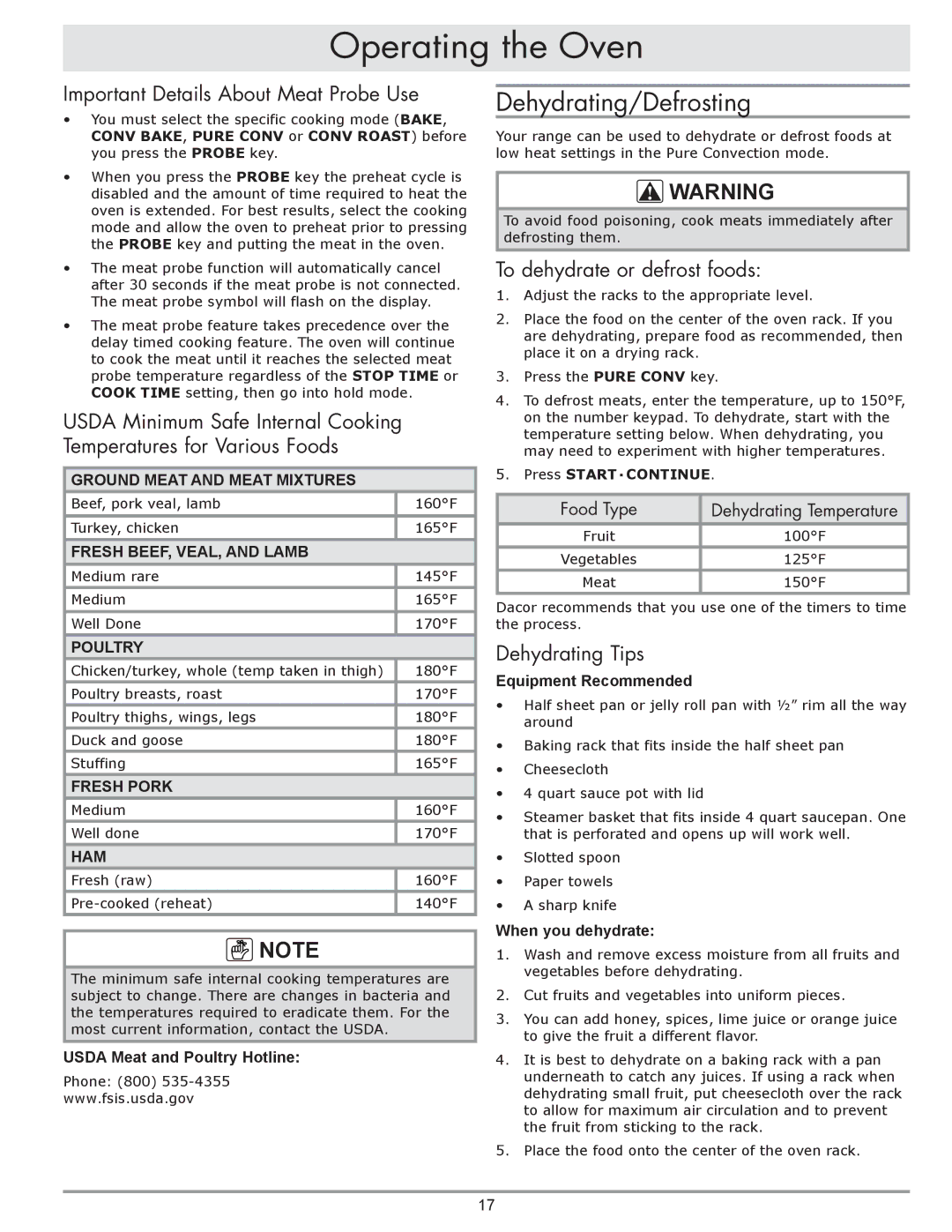dacor specifications
Dacor, a premium appliance brand renowned for its innovation and luxury, has established itself as a leader in the high-end kitchen equipment market. Founded in 1965, Dacor is celebrated for combining cutting-edge technology with elegant design, resulting in products that not only elevate culinary experiences but also enhance kitchen aesthetics.One of the standout features of Dacor appliances is their commitment to professional-grade performance. Cooktops and ovens are engineered with powerful burners and precise temperature controls, catering to both amateur cooks and seasoned chefs. Dacor’s Dual-Fuel Ranges, for instance, combine the responsive heat of gas with the consistent cooking capabilities of electric ovens, ensuring perfect results every time.
Another hallmark of Dacor’s offerings is their Smart technology. Many Dacor appliances come equipped with the Dacor iQ Kitchen app, allowing users to monitor and control their appliances remotely via smartphones or tablets. This level of connectivity enables home chefs to preheat their ovens, monitor cooking progress, and receive notifications, all while managing other tasks.
Dacor is also dedicated to sustainability and energy efficiency. Their products are designed with eco-friendly materials and utilize energy-conserving technologies to minimize impact on the environment. From ENERGY STAR-certified refrigerators to induction cooktops that offer rapid heating without the wasted energy of traditional gas or electric ranges, Dacor proves that luxury and sustainability can coexist.
The design of Dacor appliances is equally impressive, merging sleek aesthetics with functional ergonomics. Their products often feature professional-grade stainless steel finishes, customizable knobs, and large viewing windows, making them the centerpiece of any kitchen. The elegance is not just limited to appearance; Dacor’s products are designed for easy maintenance, ensuring that beauty does not come at the cost of practicality.
Safety is another key aspect of Dacor’s product design. Features such as automatic shut-off mechanisms in ovens and cooktops, protective glass in warming drawers, and child safety locks enhance the user experience without compromising safety.
In conclusion, Dacor stands out in the world of luxury kitchen appliances with its blend of professional performance, smart technology, sustainability, sophisticated design, and safety features. For those seeking to elevate their culinary experience and create a stunning kitchen environment, Dacor offers an unparalleled selection of high-quality appliances that cater to a modern lifestyle. The brand's commitment to excellence is evident in each meticulously crafted product, making Dacor a preferred choice for discerning homeowners and culinary enthusiasts.

